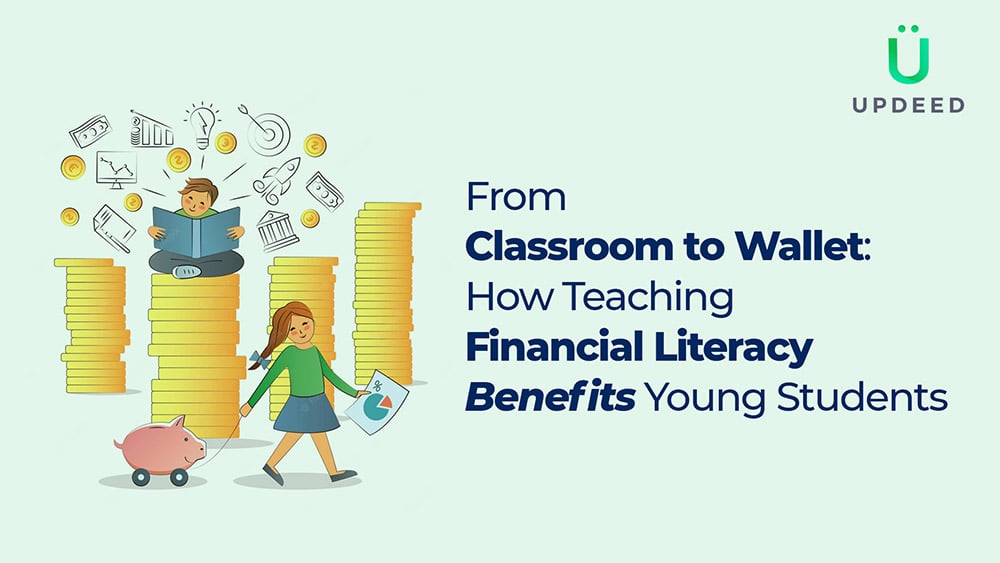From Classroom to Wallet: How Teaching Financial Literacy Benefits Young Students
Financial literacy is an essential life skill that every individual should have. It refers to the knowledge and skills required to manage personal finances effectively.
Unfortunately, financial literacy is not a subject taught in most schools.
As a result, many young students grow up without a proper understanding of money management, leading to significant financial problems in adulthood. However, by teaching financial literacy in schools, we can provide young students with the necessary tools to make informed financial decisions and build a secure financial future.

Consider it a skill
Financial literacy helps young students develop important skills, including budgeting, saving, investing, and understanding credit. By learning these skills early, students can make smarter financial decisions that positively impact their future.
Financial literacy is the ability to understand and manage personal finances effectively. It is a crucial life skill that young students should learn to make informed decisions about their money. Here are some ways in which financial literacy can be a boon for young students:
- Develops money management skills: Financial literacy teaches students how to manage money wisely, including budgeting, saving, and investing. With these skills, young students can learn how to make smart financial decisions early in life, leading to a lifetime of financial security.
- Helps to make informed decisions: Financial literacy empowers young students to make informed decisions about their money. They can learn about different types of financial products, such as bank accounts, credit cards, loans, and investment options. With this knowledge, they can choose the right financial products that suit their needs.
- Encourages savings habits: Financial literacy teaches young students about the importance of saving money for emergencies and long-term goals. They can learn about the benefits of compounding interest, which encourages them to start saving early.
- Prepares for financial challenges: Financial literacy can help young students prepare for financial challenges they may face in the future, such as student loans, credit card debt, and unexpected expenses. By learning how to manage money effectively, they can avoid financial pitfalls and build a strong financial foundation.
- Builds confidence: Financial literacy can give young students the confidence to take control of their finances. They can learn to set financial goals, create a budget, and track their spending. With this confidence, they can make informed financial decisions and take charge of their financial future.
Lastly, one of the biggest benefits is that it can help young students avoid financial pitfalls. Young adults are often targeted by credit card companies and other lenders who offer them high-interest loans and credit cards with little to no understanding of the consequences.
With proper financial education, young students can learn to manage their finances wisely and avoid debt. They can learn to live within their means and save money for the future.
Teach, teach and teach
Teaching financial literacy in schools can benefit young students in many ways. It can provide them with the skills and knowledge necessary to make informed financial decisions, avoid financial pitfalls, build a solid financial foundation, and understand the value of money.
By prioritising financial literacy education, we can help our youth build a secure financial future and ensure they are equipped with the tools they need to succeed.
Ready to make a positive impact in the world?
UPDEED is the place for you. Our free and open platform is filled with inspiring stories from individuals and organizations who are making a difference in their communities and beyond. Connect and collaborate with like-minded individuals from around the globe on UPDEED, and discover your own potential to create meaningful change. Join our community and make a difference.





